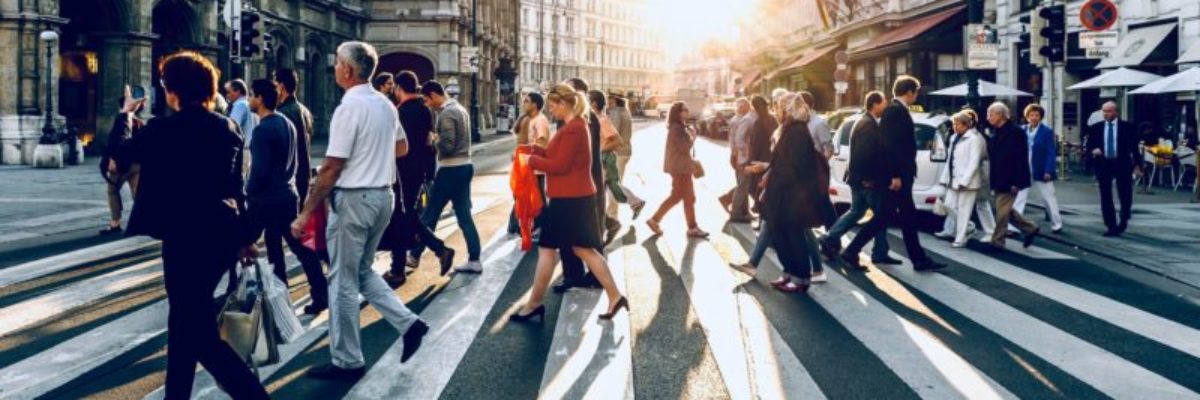
With the gradual easing of lockdown restrictions, it is now possible to start building up a more accurate picture of Covid-19 medium and long-term consequences on the Real Estate market.
Real Estate has always followed economic development and it has often proved to be more resilient than other asset classes (Swisslife). Multiple sources agree that although a slowdown is inevitable, fears for a crisis of the Swiss Real Estate market are unfounded (Credit Suisse).
The pandemic has been seen an accelerator of pre-existing trends, such as the strengthening of online retail. Businesses will leave this crisis with a strong need to reinvent themselves and to make their operational model as resilient as possible (JLL).
The way Covid-19 affected and will affect Real Estate varies depending on the region and on the asset class. As is has been observed, hospitality and retail faced a more immediate impact, while the office and the industrial market could be affected of the medium and long term (Deloitte).
“Defensive sectors such as healthcare and logistics assets continue to garner interest as active investors consider income stability, operation criticality and occupational density to be key factors in mitigating asset-level risk.” (JLL)
Potential long-term implications per sector
Logistics
Thanks to tenants such as e-commerce businesses, the logistics sector reacted positively during the outbreak. The growth of e-commerce is expected to continue and will increase the need for logistics infrastructure. The logistics landscape in Switzerland is quite heterogeneous: 40% of logistics premises concern the industrial sector, 30% retail and 30% logistics providers (CBRE). With a slowdown in economy, the demand for industrial logistics surfaces is not likely increase on the short term. On the long term though, we could experience a growth in industrial logistics since businesses, especially medtech and pharma companies, might want to relocate in Switzerland to be closer to their production line (RICS).
Healthcare
As the response to the pandemic did not always prove to be adequate, most countries will have to rethink their healthcare infrastructure to avoid future tense situations. With 12.8% of European population that will be over 80 by 2048 and the constant increase of emergency room attendance, additional healthcare premises and staff will be required.
Retail
Structural changes in retail were accelerated more than in any other sector. Looking ahead, it will be fundamental for retailers to rethink their supply chain to have the infrastructure to fulfill online orders (JLL). During the crisis, non-essential retailers have been solely reliant on e-commerce in order to continue their activity. This will change retail as we know it: less and less intermediaries will be needed as clients and companies will tend to source goods directly from the producers.
Hospitality
Although the hotel market was amongst the most affected, a rapid recovery is possible once travel restrictions will be lifted. This is expected initially at a national level, as already observed in China, and travel patterns will likely shift to less dense markets. Nevertheless, it is doubtful that the current shortfall will be compensated later (Swisslife).
Office
Lockdown was defined by many as the largest “home office experiment” ever seen so far. Until the virus is eradicated and a vaccine is found, it is very likely that we will not completely go back to work as we were used to. It is therefore necessary to think about future solution that Real Estate can provide, which might involve a mix of co-working, traditional offices and working from home (RICS).
Residential
The direct influence on the residential sector was limited, although previous trends are expected to accentuate (ex: lack of rental housing in urban areas) as the property market is closely linked to the economic development (Swisslife). Multifamily proved to be particularly resilient throughout the crisis but will be challenged should unemployment grow (JLL).
Insights from China and Hong Kong
After two months of lockdown, many sectors are starting to seize new opportunities involving the digital economy, online entertainment, healthcare and technology (JLL). The phenomenon of “revenge shopping”, and “revenge travel” have been observed with the beginning of the reopening, regarding especially F&B and domestic travel.
From a Real Estate perspective, the industrial and residential markets are still interesting, while questions about the future of the office and retail market are rising (RICS).